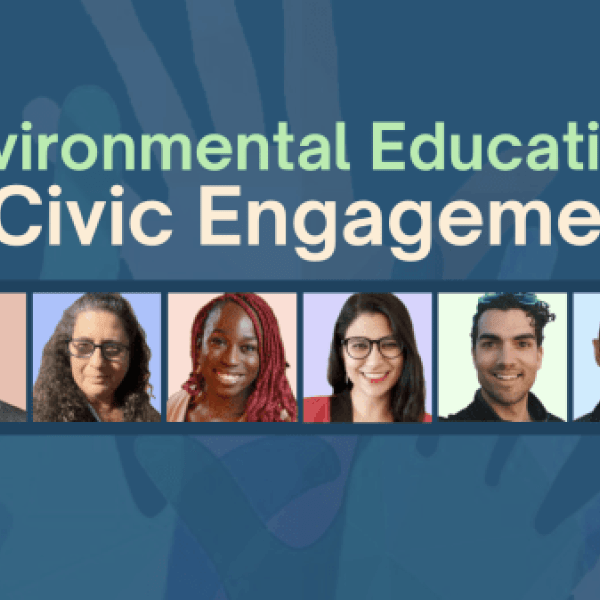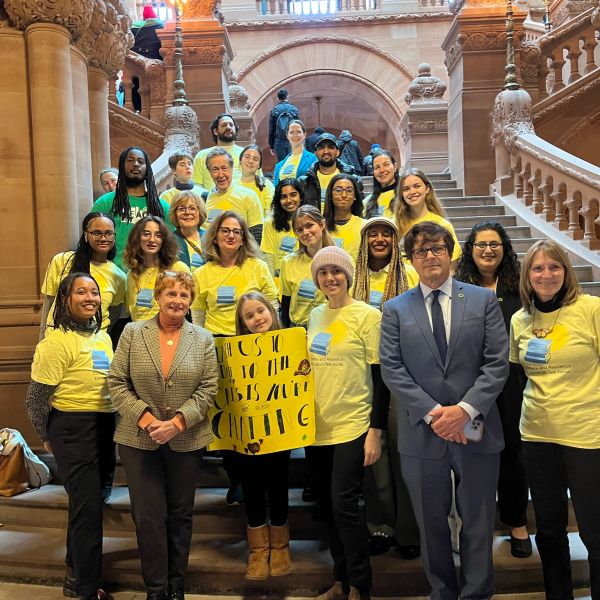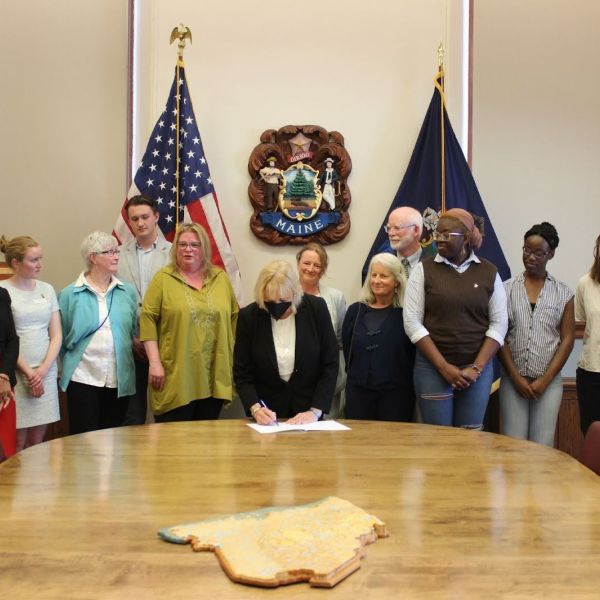Environmental Education and Civic Engagement

Civic engagement fosters democratic participation, ensuring healthier ecosystems, and includes various perspectives in shaping environmental policies and decisions. Without strong civic engagement, environmental solutions may become unsustainable and lack innovation.
Cornell University hosted a series of expert panels in Spring 2024 and 2025 to explore how environmental education can foster civic engagement, and catalyze community and ecosystem well-being. We asked these questions: What is civic engagement? How are environmental education, civic engagement, and environmental governance related? How can environmental education foster civic engagement and democracy? How can individuals and communities be involved?
This EE and Civic Engagement mini-blog series highlights key insights from the panel discussions. Each post will feature one panelist, sharing their segment of the webinar along with a thoughtful essay that expands on their ideas.
Yun-Wen Chan is an assistant professor of Curriculum and Instruction at Texas State University. Her research focuses on environmental citizenship, which is located at the intersection of sustainability education and civic education. She asks how to balance human and natural needs, how cultural orientations and economic pressures interact, and where education fits in mediating these challenges. Dr. Chan has closely worked with teachers and students in the United States, Taiwan, and mainland China about deliberations of sustainability challenges and controversial issues.
John Dryzek is a distinguished professor and former Australian Research Council Laureate Fellow in the Centre for Deliberative Democracy and Global Governance at the University of Canberra. He is former head of the Political Science departments at the University of Oregon and University of Melbourne, and of the Social and Political Theory Program at Australian National University. He is a Fellow of the Academy of Social Sciences in Australia and Corresponding Fellow of the British Academy. One of the instigators of the ‘deliberative turn’ in thinking about democracy, he has published eight books in this area with Oxford University Press, Cambridge University Press, and Polity Press. His work in environmental politics and climate governance has yielded seven books with Oxford University Press, Cambridge University Press, and Basil Blackwell. His current research emphasizes global justice, governance in the Anthropocene, and confronting contemporary challenges to democracy.
Nathan Spees is the global education and engagement coordinator at WWF Austria, where he leads the development and implementation of WWF’s global education strategy, “Together for Action 2030.” With a background in biology, environmental science, and English education, his career has focused on nonformal, outdoor, and experiential learning. Since joining WWF Austria in 2008, he has played a key role in youth empowerment, co-founding the “Generation Earth” leadership program and spearheading the EU project “Eat4Change” to engage young people in sustainable diets and climate action. He also co-chairs WWF’s Global Youth Task Force, advancing strategies for youth leadership and environmental engagement worldwide. Passionate about nature, he enjoys hiking, camping, skiing, and spending time by the river.
Oliver Escobar is Professor of Public Policy and Democratic Innovation at the University of Edinburgh in Scotland. He works on participatory and deliberative democracy, with a focus on citizen participation, policy innovation, the commons, political inequalities, and the governance of the future. His research explores the intersections of political theory and practice, aiming to improve the legitimacy and capacity of democracy to address the challenges of our time.
His latest book is Climate Assemblies: New Civic Institutions for a Climate-Changed World, co-edited with Stephen Elstub and forthcoming in 2025.
Emily Fano is the Senior Manager for Climate Resilience Education at the National Wildlife Federation. A published author and experienced climate leader, Emily specializes in the design of whole community climate resilience education and teacher training programs including the Resilient Schools and Communities (RiSC) program. Emily is also the founder of the Climate & Resilience Education Task Force, an intergenerational coalition of educators, students, NGOs, and community members working to expand access to climate education across New York State.
Amara Ifeji is a National Geographic Young Explorer and internationally awarded non-profit leader in climate and environmental justice. As the Director of Policy with the Maine Environmental Education Association, she leverages grassroots advocacy and participatory justice to advance local, state, and federal policy solutions. She served as the lead coordinator for Maine's first Climate Education Summit, mobilized a youth-led movement that spearheaded Maine's $2+ million climate education program, and serves on the Maine Climate Council as the governor-appointed Youth Representative.
Gitanjali Paul is the founder of Gitanjali Learning Design LLC, where she specializes in helping organizations design and facilitate education for sustainable development. Her work emphasizes empowering individuals to think systematically to achieve transformative learning outcomes. Gitanjali is currently an NAAEE CEE-Change Fellow working with the nonprofit Compass Education to train PK-12 educators to integrate climate education and civic action into their classrooms with systems thinking tools.
Taylor Ruffin is a Program Manager at Earth Force, where he applies the Environmental Action Civics model to empower students to address local environmental issues through civic engagement. His efforts include developing and implementing projects that engage underrepresented communities in environmental stewardship and policy-making in the Denver Metro Area.













